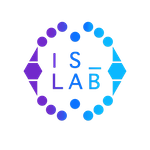N. Bassiliades, G. Antoniou, I. Vlahavas, “DR-DEVICE: A Defeasible Logic System for the Semantic Web”, Second International Workshop on Principles and Practice of Semantic Web Reasoning (PPSWR04), Sebastian Schaffert (Ed.), Springer-Verlag, LNCS 3208, pp. 134-148, St Malo, France, 6-10 Sept., 2004.
Author(s): Nick Bassiliades, G. Antoniou, I. Vlahavas
Keywords: rules, reasoning, defeasible logic, rule markup languages, semantic brokering.
Tags:
Abstract: This paper presents DR-DEVICE, a system for defeasible reasoning on the Web. Defeasible reasoning is a rule-based approach for efficient reasoning with incomplete and inconsistent information. Such reasoning is, among others, useful for ontology integration, where conflicting information arises naturally; and for the modeling of business rules and policies, where rules with exceptions are often used. In this paper we describe these scenarios in more detail along with the implementation of the DR-DEVICE system, which is capable of reasoning about RDF data over multiple Web sources using defeasible logic rules. The system is implemented on top of CLIPS production rule system and builds upon R-DEVICE, an earlier deductive rule system over RDF data that also supports derived attribute and aggregate attribute rules. Rules can be expressed either in a native CLIPS-like language, or in an extension of the OORuleML syntax. The operational semantics of defeasible logic are implemented through compilation into the generic rule language of R-DEVICE. The paper includes a use case of a semantic web broker that reasons defeasibly about renting apartments based on buyer's requirements (expressed RuleML defeasible logic rules) and seller's advertisements (expressed in RDF).
